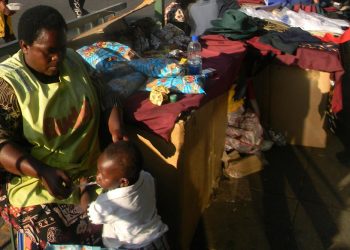A host of countries have taken steps to reform the terms under which people can access their retirement benefits. South Africa is the most recent. In 2024 it introduced changes that allow access to some retirement savings while ensuring that most of the money is still preserved for later.
Other countries that have changed the rules to allow members to dip into their savings before retirement include Australia, Chile, India and Portugal. Changes were introduced to ease the financial strain caused by COVID-19 pandemic lockdowns. People across the world are grappling with debt and the cost of living.
Policymakers have considered this an avenue that offers financially distressed fund members the flexibility to access their retirement funds while still supporting long-term retirement savings. Retirement funds are also often the only sizeable savings that fund members have.
A recent report by South Africa’s Discovery Corporate and Employee Benefits, which represents 3,000 employers that provide pension and provident funds for just over one million employees, found that people aged between 35 and 45 made the most claims to access the savings component of their retirement.
When asked what they used the funds for, 24% of members said their withdrawals were for financing home or car expenses. Another 21% of members were using their funds to pay off short-term debt. The majority of members who withdrew their retirement savings were low-income earners (earning up to R125,000 or US$7,000 a year). On the other hand, withdrawals were lowest among high-income earners (earning more than R1 million or US$56,000 a year).
This data provides evidence that most low- to middle-income South African consumers are grappling with the trade-off between preserving their capital for retirement and meeting their monthly financial obligations.
Given that everyone’s financial situation, goals and needs are different, it’s always best to speak to a financial advisor to assess whether using your retirement savings to pay off debt will be a sound move. But, as academics who have focused on financial planning, we offer three pointers to consider:
-
understand what you owe, to whom, and what it’s costing you
-
plan beyond paying off debt
-
weigh the pros and cons carefully.
Know which debt to settle first
Debt with a high interest rate often takes longer to repay, because at the start of the loan repayment period, most of the repayments are going towards interest payments – not reducing the capital amount. If you use your retirement proceeds towards this, it could shorten the period that it would take to settle the loan and reduce the interest repayments, which are compounded according to the outstanding loan balance.
Short-term loans, such as those with a repayment term of up to 18 months, tend to have higher interest rates. Unsecured debt, which is debt that is not tied to an asset, also attracts high interest rates because they have little to no collateral requirements. Collateral provides the lender with a guarantee of compensation in the event of default. When there is no collateral, the cost of debt becomes more expensive. Using your retirement proceeds towards settling these short-term loans can free up cash that can be used towards settling other debt and will improve your credit score.
Understanding borrowing behaviour
Using your retirement savings to settle debt should be a priority if you have a plan in place to ensure that your overall financial position will improve. Once the debt is cleared, consider how you can use your free cash in your favour. This could mean boosting your savings or acquiring assets and investments.
But if retirement savings are being used to pay off debt while you accumulate more debt, this indicates on ongoing cycle of debt. For example, paying off the minimum amount due on a loan but also consuming the balance that becomes available on the same loan is a sign of poor borrowing behaviour. A more extreme example is taking on more debt to service existing debt.
Without a change in borrowing behaviour, using your retirement savings to pay off debt will leave you worse off. You will have missed out on the opportunity to grow your retirement savings and you will have got into more debt.
Debt repayments vs retirement returns
When considering withdrawing from your retirement savings to pay down debt, it’s also important remember this will be at the expense of building your retirement nest egg. For instance, if a 35-year-old were to draw down R30,000 from their retirement fund, that same amount could have grown their retirement capital by over R200,000 by the time they reached 55 years old (assuming an investment return of 10%).
Withdrawing your retirement savings on a frequent basis could also mean you may need to work longer and past your intended retirement age to compensate for the withdrawals. Or you may need to find ways to supplement your retirement savings through other investments, or consider reducing your standard of living at retirement.
Is this a sound move?
Remember, withdrawal from retirement savings is subject to tax.
While retirement may seem far off when there are more pressing financial needs, using your savings to pay down debt has its advantages and drawbacks. Since withdrawals are being used to pay for expenses and service debt, it’s also important to reflect on borrowing behaviours that may need to be corrected. Otherwise, using retirement savings could become a financial crutch that could make your retirement income less secure.
Settling debt using your retirement savings should be done after careful consideration and planning. If in doubt, speak to a financial advisor.
Jasmine Kinsman is a member elected trustee on the Nelson Mandela University Retirement Fund.
Bomikazi Zeka does not work for, consult, own shares in or receive funding from any company or organisation that would benefit from this article, and has disclosed no relevant affiliations beyond their academic appointment.















